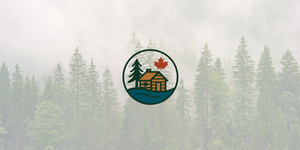Canada is the perfect name, if you ask me. It's short, easy to say, memorable and visually pleasing - there's a beautiful symmetry. But it wasn't the only option when our ancestors sat down to name the country we live in today. We came closer than you might realize to being Tuponians or Hochelaganders - instead of Canadians.

Here's the scoop
We don't know exactly where the name Canada came from. Our best guess is that it's derived from the Huron-Iroquois word “kanata,” meaning “village” or “settlement”
In 1535, two Aboriginal youths told French explorer Jacques Cartier about the route to kanata; they were actually referring to the village of Stadacona, the site of the present-day City of Québec.
That name, "Canada" as it was spelled by Cartier, was soon used to describe the entire area controlled by the village. Its range grew to cover all French lands in North America, including in what is now the United States.
Officially, the name Canada was first used in 1791, when Quebec was divided into the colonies of Upper and Lower Canada. And later in 1841, these colonies united to form the Province of Canada.

What to call a new nation
When Canada, Nova Scotia, and New Brunswick were set to unite, there was only one problem: what to name the new country! There were more than 30 options put forward.
Here were a few of the more notable names considered:
- Acadia
- Albertsland
- Albertoria
- Albionora
- Alquilonia
- Borealia
- Britannia
- Cabotia
- Colonia
- Efisga - formed by combining English, French, Irish, Scottish, German and Aboriginal
- Hochelaga - historical Iroquois village visited by Jacques Cartier in present day Montreal
- Mesoplegia - meaning "land between the seas"
- Niagarentia
- Norland
- Superior
- Transatlantia
- Tuponia - formed from The United Provinces of North America
- Vesperia
- Victorialand
- Victorialia
Despite the many options put forward, the answer may have been just as obvious then as it is today. As a Member of Parliament eloquently stated:
I ask any honourable member of this House how he would feel if he woke up some fine morning and found himself instead of a Canadian, a Tuponian or a Hochelagander.
This sentiment became official as the Province of Canada, Nova Scotia and New Brunswick came together to form Canada, on July 1, 1867.







Join the Conversation